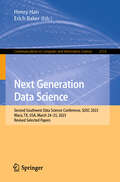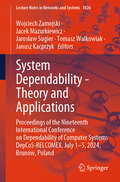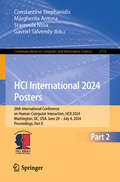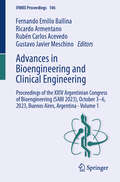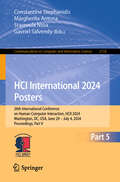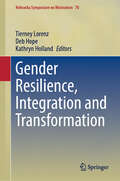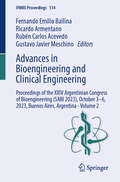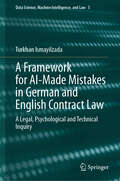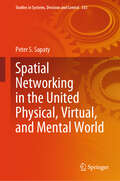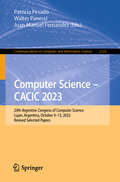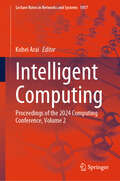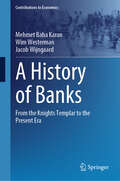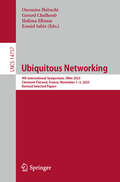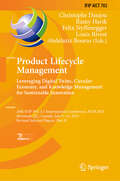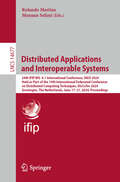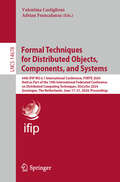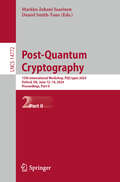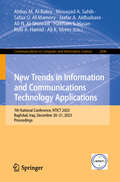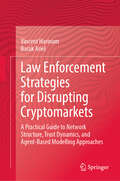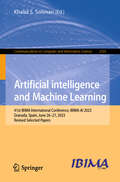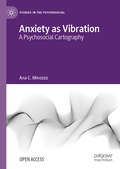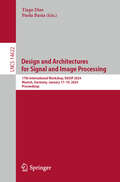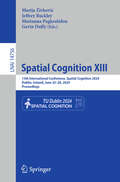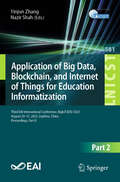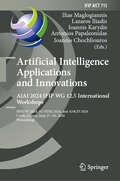- Table View
- List View
Next Generation Data Science: Second Southwest Data Science Conference, SDSC 2023, Waco, TX, USA, March 24–25, 2023, Revised Selected Papers (Communications in Computer and Information Science #2113)
by Henry Han Erich BakerThis book constitutes the refereed proceedings of the Sescond Southwest Data Science Conference, SDSC 2023, held in Waco, TX, USa, during March 24-25, 2023. The 16 full and 1 short paper included in this book were carefully reviewed and selected from 72 submissions. They were oragnized in topical sections named: Business social and foundation data science; and applied data science, artifiicial intelligence and data engineering.
System Dependability - Theory and Applications: Proceedings of the Nineteenth International Conference on Dependability of Computer Systems DepCoS-RELCOMEX. July 1–5, 2024, Brunów, Poland (Lecture Notes in Networks and Systems #1026)
by Janusz Kacprzyk Wojciech Zamojski Jacek Mazurkiewicz Jarosław Sugier Tomasz WalkowiakThis book presents a selection of papers about problems which arise in dependability studies of contemporary computer systems and networks. Their collection should be an interesting and inspiring source material for scientists, researchers, engineers, and students who must consider diverse dependability characteristics in design, analysis, or maintenance of computer systems and networks. The papers were presented during the 19th DepCoS-RELCOMEX conference which was the next event in a series organized annually since 2006. Originating as a scientific platform for discussions of reliability aspects in computer engineering, the topical scope of the conference has been constantly expanded to incorporate new dependability challenges brought by recent advances in systems and information technologies. Currently, dependable operation in the context of computer processing means obtaining reliable (true and timely) results in the conditions of processing both quantitative and qualitative data, using precise or fuzzy (often: imitating) models and algorithms. With increasing use of artificial intelligence algorithms and tools, dependability in contemporary information technology and computer engineering calls for methods based on cognitive systems and deep learning techniques. Topical variety of the papers included in these proceedings proves that almost all applications of modern computer systems and networks must take into account the aspect of dependability and also illustrates a wide diversity of multidisciplinary subjects which needs to be considered in this context.
HCI International 2024 Posters: 26th International Conference on Human-Computer Interaction, HCII 2024, Washington, DC, USA, June 29 – July 4, 2024, Proceedings, Part II (Communications in Computer and Information Science #2115)
by Gavriel Salvendy Margherita Antona Constantine Stephanidis Stavroula NtoaThe seven-volume set CCIS 2114-2120 contains the extended abstracts of the posters presented during the 26th International Conference on Human-Computer Interaction, HCII 2024, held in Washington, DC, USA, during June 29–July 4, 2024. The total of 1271 papers and 309 posters included in the HCII 2024 proceedings were carefully reviewed and selected from 5108 submissions. The posters presented in these seven volumes are organized in the following topical sections: Part I: HCI Design Theories, Methods, Tools and Case Studies; User Experience Evaluation Methods and Case Studies; Emotions in HCI; Human Robot Interaction. Part II: Inclusive Designs and Applications; Aging and Technology. Part III: eXtended Reality and the Metaverse; Interacting with Cultural Heritage, Art and Creativity. Part IV: HCI in Learning and Education; HCI in Games. Part V: HCI in Business and Marketing; HCI in Mobility and Automated Driving; HCI in Psychotherapy and Mental Health. Part VI: Interacting with the Web, Social Media and Digital Services; Interaction in the Museum; HCI in Healthcare. Part VII: AI Algorithms and Tools in HCI; Interacting with Large Language Models and Generative AI; Interacting in Intelligent Environments; HCI in Complex Industrial Environments.
Advances in Bioengineering and Clinical Engineering: Proceedings of the XXIV Argentinian Congress of Bioengineering (SABI 2023), October 3–6, 2023, Buenos Aires, Argentina - Volume 1 (IFMBE Proceedings #106)
by Ricardo Armentano Fernando Emilio Ballina Rubén Carlos Acevedo Gustavo Javier MeschinoThis book offers a timely snapshot of research, technologies and best practices in the broad area of bioengineering and clinical engineering. It reports on advances in biomechanics, biomedical image processing, biomaterials and tissue engineering. Further, it covers applications of artificial intelligence in biology and medicine, and instrumentation. Gathering the first volume of the proceedings of the XXIV Argentinian Congress of Bioengineering (SABI 2023), held on October 3–6, 2023, in Buenos Aires, Argentina - and organised by the Sociedad Argentina de Bioingeniería, this book provides an extensive source of information for both researchers and professionals in biomedical and clinical engineering.
HCI International 2024 Posters: 26th International Conference on Human-Computer Interaction, HCII 2024, Washington, DC, USA, June 29 – July 4, 2024, Proceedings, Part V (Communications in Computer and Information Science #2118)
by Gavriel Salvendy Margherita Antona Constantine Stephanidis Stavroula NtoaThe seven-volume set CCIS 2114-2120 contains the extended abstracts of the posters presented during the 26th International Conference on Human-Computer Interaction, HCII 2024, held in Washington, DC, USA, during June 29–July 4, 2024. The total of 1271 papers and 309 posters included in the HCII 2024 proceedings were carefully reviewed and selected from 5108 submissions. The posters presented in these seven volumes are organized in the following topical sections: Part I: HCI Design Theories, Methods, Tools and Case Studies; User Experience Evaluation Methods and Case Studies; Emotions in HCI; Human Robot Interaction. Part II: Inclusive Designs and Applications; Aging and Technology. Part III: eXtended Reality and the Metaverse; Interacting with Cultural Heritage, Art and Creativity. Part IV: HCI in Learning and Education; HCI in Games. Part V: HCI in Business and Marketing; HCI in Mobility and Automated Driving; HCI in Psychotherapy and Mental Health. Part VI: Interacting with the Web, Social Media and Digital Services; Interaction in the Museum; HCI in Healthcare. Part VII: AI Algorithms and Tools in HCI; Interacting with Large Language Models and Generative AI; Interacting in Intelligent Environments; HCI in Complex Industrial Environments.
Gender Resilience, Integration and Transformation (Nebraska Symposium on Motivation #70)
by Kathryn Holland Tierney Lorenz Deb HopeThere has been a surge in research on gender and sexuality in the last decade, which has predominantly focused on discrimination, dysphoria, and disparities. And much of what we hear in the news about issues relating to gender and sexuality is deeply negative, with seemingly endless attacks on people who are marginalized by their gender and/or sexuality—attacks that are both physical and political. While such issues are extremely important, this one-sided focus casts the experience of minoritized people as intrinsically negative. A deficit model implies the best one can hope for is to avoid negative outcomes, which limits the possibilities of authentic gender and sexual identity and expression, intimate connection, and personal and professional success. We need more nuanced and methodologically rigorous approaches to understanding resiliency and wellbeing within minoritized groups, including women, queer (e.g., lesbian, gay, bisexual, pansexual, asexual, demisexual), and transgender and gender diverse people. If all we ever hear about the experiences of minoritized people is pain, we diminish the strength of these communities and the richness of their humanity. When we expand our view to include the positive, we reclaim humanity—not to mention, strengthen our science by developing theories and conducting research that address the incredible range of human experience around gender and sexuality. The 70th Annual Nebraska Symposium on Motivation focused on understanding resiliency, joy, pleasure and well-being in women, queer folks and gender-diverse people. In bringing together a diverse international and interdisciplinary group of scholars and scientists, we created a space to explore joy, to break with narratives of deficiency, and honor wellbeing with the same scientific vigor and rigor as we give to pain. The chapters of this volume represent this effort, all centered on the question: What would it look like if your field of study—the study of gender and sexuality—truly centered wellbeing and resilience as the foundation of theory and research?
Advances in Bioengineering and Clinical Engineering: Proceedings of the XXIV Argentinian Congress of Bioengineering (SABI 2023), October 3–6, 2023, Buenos Aires, Argentina - Volume 2 (IFMBE Proceedings #114)
by Ricardo Armentano Fernando Emilio Ballina Rubén Carlos Acevedo Gustavo Javier MeschinoThis book offers a timely snapshot of research, technologies and best practices in the broad area of bioengineering and clinical engineering. Contributions report on advances in biomedical signal processing, biosystem models and 3D printing applications, clinical engineering, and neuromuscolar system analysis and rehabilitation engineering. They also cover developments in bioengineering education. Gathering the second volume of the proceedings of the XXIV Argentinian Congress of Bioengineering (SABI 2023), held on October 3–6, 2023, in Buenos Aires, Argentina - and organised by the Sociedad Argentina de Bioingeniería, this book provides an extensive source of information for both researchers and professionals in biomedical and clinical engineering.
A Framework for AI-Made Mistakes in German and English Contract Law: A Legal, Psychological and Technical Inquiry (Data Science, Machine Intelligence, and Law #5)
by Turkhan IsmayilzadaThis book tries to answer the question “What happens if an AI system makes a mistake while contracting?” by applying an interdisciplinary and comparative legal methodology. It offers a tantalizing glimpse into the intricate web of legal, psychological, and technical phenomena involved, and how they are interconnected within the realm of contractual mistake doctrine as we know it today. It covers a wide range of topics, including the common origins of German and English contract law, the pivotal role of intentions as a prerequisite for effectual contracts in both jurisdictions, the classification of and psychological approach to contractual mistakes, and the complexities of AI’s participation in contract law. Particular attention is paid to the juxtaposition of human- and AI-made mistakes from the perspective of information processing. As a result, the book offers a jurisdiction-agnostic framework for AI-made contractual mistakes that can aid legislators and policymakers in their deliberations on the regulation of AI in contract law. The framework considers cultural and historical differences between German and English contract law, and thus proposes an approach that can fit both (and potentially other similar) jurisdictions with minor adjustments. In addition to these novel discussions, the work explores the views of prominent scholars and international experts in the field. As such, it will appeal to researchers and scholars in the fields of law, technology, psychology, and (especially) Artificial Intelligence. By presenting “a framework for AI-made mistakes in German and English contract law,” Dr. Ismayilzada offers a valuable contribution to the field, inviting readers to explore the uncharted territory of AI and the law. Join the author on this intellectual journey and gain insights that will redefine your perception of contracts in the age of AI.
Spatial Networking in the United Physical, Virtual, and Mental World (Studies in Systems, Decision and Control #533)
by Peter S. SapatyThe current book chooses graphs and networks as primary and global research objectives after reviewing different types and areas of networking and existing works on graph and network operations. The ideas of this book originate from the WAVE approach which allowed us, more than half a century ago, to implement citywide heterogeneous computer networks and solve distributed problems on them in flexible and mobile way. The invented management paradigm evolved into Spatial Grasp Technology resulted in European patent and nine previous books oriented on concrete applications in social and defense systems, security, crises management, collective robotics, space research, and others. Many obtained results were dealing with graph and network structures and problems which were extremely important in the researched areas. It aims at development of higher-level social infrastructures effectively integrating different types of networking under the same universal approach, also application of networking in new areas like organoids and brain research. This book is oriented toward system scientists, application programmers, industry managers, university students, philosophers, psychologists, and United Nations personnel too.
Computer Science – CACIC 2023: 29th Argentine Congress of Computer Science, Lujan, Argentina, October 9–12, 2023, Revised Selected Papers (Communications in Computer and Information Science #2123)
by Juan Manuel Fernández Patricia Pesado Walter PanessiThis book constitutes the refereed proceedings of the 29th Argentine Congress of Computer Science on Computer Science - CACIC 2023, held in Luján, Argentina, during October 9–12, 2023. The 27 full papers included in this book were carefully reviewed and selected from 142 submissions. They were organized in topical sections as follows: agents and systems; distributed and parallel processing; technology applied to education; graphic computation, images and visualization; software engineering; databases and data mining; hardware architectures, networks, and operating systems; innovation in software systems; signal processing and real-time systems; innovation in computer science education; computer security; digital governance and smart cities.
Intelligent Computing: Proceedings of the 2024 Computing Conference, Volume 2 (Lecture Notes in Networks and Systems #1017)
by Kohei AraiExplore the forefront of computing with the proceedings of the Computing Conference 2024. Featuring 165 carefully selected papers from a pool of 457 submissions, this collection encapsulates the cutting-edge research and innovation presented during the conference. Delve into a diverse range of topics, insights, and methodologies that shape the future of computing. Whether you're an academic, researcher, or enthusiast, this concise volume offers a snapshot of the dynamic and collaborative spirit defining the Computing Conference 2024.
A History of Banks: From the Knights Templar to the Present Era (Contributions to Economics)
by Mehmet Baha Karan Wim Westerman Jacob WijngaardThis book provides an overview of monetary history from the perspectives of the financial intermediaries who shaped it. Starting from the Knights Templar and ending with contemporary national banking champions, it presents several case studies that demonstrate how banks from around the world have revolutionized both their operations and the markets they operate in. The text holds a plea for democratic and transnational financial intermediation systems. It appeals to students and scholars of economic history as well as to anyone interested in the history of banking and finance.
Ubiquitous Networking: 9th International Symposium, UNet 2023, Clermont-Ferrand, France, November 1–3, 2023, Revised Selected Papers (Lecture Notes in Computer Science #14757)
by Essaid Sabir Oussama Habachi Halima Elbiaze Gerard ChalhoubThis book constitutes the refereed proceedings of the 9th International Symposium on Ubiquitous Networking, UNet 2023, held in Clermont-Ferrand, France, during November 01–03, 2023. The 14 full papers included in this book were carefully reviewed and selected from 28 submissions. They were organized in topical sections as follows: artificial intelligence-driven communications; data engineering, cyber security and pervasive services; tactile internet and internet of things; ubiquitous communication technologies and networking.
Product Lifecycle Management. Leveraging Digital Twins, Circular Economy, and Knowledge Management for Sustainable Innovation: 20th IFIP WG 5.1 International Conference, PLM 2023, Montreal, QC, Canada, July 9–12, 2023, Revised Selected Papers, Part II (IFIP Advances in Information and Communication Technology #702)
by Abdelaziz Bouras Ramy Harik Louis Rivest Felix Nyffenegger Christophe DanjouThis two-volume set IFIP AICT 701-702 constitutes the refereed post-conference proceedings of the 20th IFIP WG 5.1 International Conference on Product Lifecycle Management: Leveraging Digital Twins, Circular Economy, and Knowledge Management for Sustainable Innovation, PLM 2023, held in Montreal, QC, Canada, during July 9–12, 2023. The 61 regular papers included in this book were carefully reviewed and selected from 116 submissions. They are organized in the following thematic sections: Part I: Technology implementation: augmented reality, CPS and digital twin; organisation: knowledge management, change management, frameworks for project and service development; modelisation : CAD and collaboration, model-based system engineering and building information modeling. Part II: Circular economy: characterization, criteria and implementation; interoperability technology: blockchain, IoT and ontologies for data exchange; learning and training: from AI to a human-centric approach; smart processes: prediction, optimization and digital thread.
Distributed Applications and Interoperable Systems: 24th IFIP WG 6.1 International Conference, DAIS 2024, Held as Part of the 19th International Federated Conference on Distributed Computing Techniques, DisCoTec 2024, Groningen, The Netherlands, June 17–21, 2024, Proceedings (Lecture Notes in Computer Science #14677)
by Rolando Martins Mennan SelimiThis book constitutes the refereed proceedings of the 24th International Conference on Distributed Applications and Interoperable Systems, DAIS 2024, held in PhGroningen, The Netherlands, as Part of the 19th International Federated Conference on Distributed Computing Techniques, DisCoTec 2024, during June 17–21, 2024. The 5 full papers included in this book were carefully reviewed and selected from 17 submissions. They focus on all practical and conceptual aspects of distributed applications, including their design, modeling, implementation, and operation; the supporting middleware; appropriate software engineering methodologies and tools; and experimental studies and applications.
Formal Techniques for Distributed Objects, Components, and Systems: 44th IFIP WG 6.1 International Conference, FORTE 2024, Held as Part of the 19th International Federated Conference on Distributed Computing Techniques, DisCoTec 2024, Groningen, The Netherlands, June 17–21, 2024, Proceedings (Lecture Notes in Computer Science #14678)
by Valentina Castiglioni Adrian FrancalanzaThis book constitutes the refereed proceedings of the 44th IFIP WG 6.1 International Conference on Formal Techniques for Distributed Objects, Components, and Systems, FORTE 2024, held in Groningen, The Netherlands, in June 2024, as part of the 19th International Federated Conference on Distributed Computing Techniques, DisCoTec 2024 during June 17–21, 2024. The 11 full papers and 2 short papers included in this book were carefully reviewed and selected from 33 submissions. They focus on fundamental research on theory, models, tools, and applications for distributed systems.
Post-Quantum Cryptography: 15th International Workshop, PQCrypto 2024, Oxford, UK, June 12–14, 2024, Proceedings, Part II (Lecture Notes in Computer Science #14772)
by Daniel Smith-Tone Markku-Juhani SaarinenThe two-volume set LNCS 14771 and 14772 constitutes the refereed proceedings of the 15th International Workshop, PQCrypto 2024, held in Oxford, UK, during June 12–14, 2024. The 28 full papers included in these proceedings were carefully reviewed and selected from 76 submissions. They were organized in topical sections as follows: Part I: Applications and protocols; code-based cryptography; group-action-based cryptography; lattice-based cryptography; Part II: Isogeny-Based cryptgraphy; multivariate cryptography; quantum algorithms; transforms and proofs.
New Trends in Information and Communications Technology Applications: 7th National Conference, NTICT 2023, Baghdad, Iraq, December 20–21, 2023, Proceedings (Communications in Computer and Information Science #2096)
by Abbas M. Al-Bakry Safaa O. Al-Mamory Mouayad A. Sahib Haitham S. Hasan Jaafar A. Aldhaibani Ali N. Al-Shuwaili Rula A. Hamid Ali K. IdreesThis book constitutes the refereed proceedings of the 7th National Conference on New Trends in Information and Communications Technology Applications, NTICT 2023, held in Baghdad, Iraq, during December 20–21, 2023. The 28 full papers included in this book were carefully reviewed and selected from 92 submissions. They were organized in topical sections as follows: artificial intelligence and machine learning; and computer networks.
Law Enforcement Strategies for Disrupting Cryptomarkets: A Practical Guide to Network Structure, Trust Dynamics, and Agent-Based Modelling Approaches
by Barak Ariel Vincent HarinamThis book investigates the recent history of the drug market on the dark web and suggests interventions that can be used to curb the trade of illegal products in the internet's underbelly. It outlines the current landscape of this market, highlighting: • What is known about drug markets on the dark web. • How transactions involving illicit goods occur in cryptomarkets. • How the illegal trade of drugs is conducted in the dark web. • The role of blockchain technology in these transactions. The chapters that follow identify effective methods suppliers and purchasers employ to trade under conditions of uncertainty. They explore the role that trust plays in network structures and vendor selections for drug markets. The volume includes a review of the targeting strategies available for law enforcement and offers new solutions to target the trade of illicit goods on the dark web. It is ideal for law enforcement officers and practitioners combatting cybercrime.
Artificial intelligence and Machine Learning: 41st IBIMA International Conference, IBIMA-AI 2023, Granada, Spain, June 26–27, 2023, Revised Selected Papers (Communications in Computer and Information Science #2101)
by Khalid S. SolimanThis book constitutes the revised selected papers of the 41st IBIMA International Conference on Artificial intelligence and Computer Science, IBIMA-AI 2023, which took place in Granada, Spain during June 26-27, 2023. The 30 full papers and 8 short papers included in this volume were carefully reviewed and selected from 58 submissions. The book showcases a diverse array of research papers spanning various disciplines within the realm of Artificial Intelligence, Machine Learning, Information Systems, Communications Technologies, Software Engineering, and Security and Privacy.
Anxiety as Vibration: A Psychosocial Cartography (Studies in the Psychosocial)
by Ana C. MinozzoThis open access book draws on the work of Deleuze and Guattari alongside Lacan and Freud to offer a radical psychosocial survey of the status of anxiety. Taking a multidisciplinary approach, the book examines key issues in contemporary diagnosis and points towards possibilities for forging a more creative clinic. Departing from a feminist, non-Oedipal positioning towards psychoanalytic texts, the author invites art theory, medical humanities and philosophy into a conversation that seeks to answer the question: What can anxiety do? Here, Ana Minozzo explores the possibilities of an encounter with the Real as a sphere of excessive affect in psychoanalysis, and terms this meeting a ‘vibration’. Situating this enquiry within the art practice of Lygia Clark, the book utilises vibration as a conceptual artifice when considering affects, their ethical horizons and a psychoanalytic possibility for creating new ways of living. This book offers exciting new perspective on anxiety for students, clinical trainees, art and humanities researchers and practitioners and those interested in psychoanalytic ideas in general.
Design and Architectures for Signal and Image Processing: 17th International Workshop, DASIP 2024, Munich, Germany, January 17–19, 2024, Proceedings (Lecture Notes in Computer Science #14622)
by Tiago Dias Paola BusiaThis book constitutes the refereed proceedings of the 17th International Workshop on Design and Architecture for Signal and Image Processing, DASIP 2024, held in Munich, Germany, during January 17–19, 2024. The 9 full papers presented in this book were carefully reviewed and selected from 21 submissions. The workshop provided an inspiring international forum for the latest innovations and developments in the fields of leading signal, image, and video processing and machine learning in custom embedded, edge, and cloud computing architectures and systems.
Spatial Cognition XIII: 13th International Conference, Spatial Cognition 2024, Dublin, Ireland, June 25–28, 2024, Proceedings (Lecture Notes in Computer Science #14756)
by Gavin Duffy Marija Živković Jeffrey Buckley Marianna PagkratidouThis book constitutes the proceedings of the 13th International Conference, Spatial Cognition 2024, held in Dublin, Ireland, during June 25 - 29, 2024. The 9 full papers were carefully reviewed and selected from 12 submissions. The papers are organized in topical sections as follows: Mathematics; Gender Differences; STEAM (Science, Technology, Engineering, Art, and Mathematics); and Early Childhood.
Application of Big Data, Blockchain, and Internet of Things for Education Informatization: Third EAI International Conference, BigIoT-EDU 2023, August 29-31, 2023, Liuzhou, China, Proceedings, Part II (Lecture Notes of the Institute for Computer Sciences, Social Informatics and Telecommunications Engineering #581)
by Yinjun Zhang Nazir ShahThe five-volume set LNICST 580-584 constitutes the proceedings of the Third EAI International Conference on Application of Big Data, Blockchain, and Internet of Things for Education Informatization, BigIoT-EDU 2023, held in Liuzhou, China, during August 29–31, 2023. The 272 full papers presented in these proceedings were carefully reviewed and selected from 718 submissions. With a primary focus on research fields such as Digitization of education, Smart classrooms and Massive Online Open Courses (MOOCs), these papers are organized in the following topical sections across the five volumes: Part I: Application of data mining in smart education; Application of intelligent algorithms in English teaching. Part II: Application of decision tree algorithm in intelligent management system of universities; Research on the application of Big data in smart teaching. Part III: Exploration of the application of computer-aided technology in intelligent translation; Application of neural network algorithms in intelligent teaching; Application of artificial intelligence algorithms in the field of smart education. Part IV: Research on smart teaching in deep learning; Research and application of recommendation algorithms in personalized intelligent education; Application of cloud computing in intelligent teaching resource library; Application research of computer-aided online intelligent teaching. Part V: Application and practice of new media in smart teaching; Application of clustering algorithm in intelligent education resource library; Application of association rule algorithm in intelligent education system.
Artificial Intelligence Applications and Innovations. AIAI 2024 IFIP WG 12.5 International Workshops: MHDW 2024, 5G-PINE 2024, and ΑΙ4GD 2024, Corfu, Greece, June 27-30, 2024, Proceedings (IFIP Advances in Information and Communication Technology #715)
by Ioannis Karydis Lazaros Iliadis Ilias Maglogiannis Antonios Papaleonidas Ioannis ChochliourosThis book constitutes the refereed proceedings of three International Workshops held as parallel events of the IFIP WG 12.5 International Workshops on Artificial Intelligence Applications and Innovations, AIAI 2024, held in Corfu, Greece, during June 27-30, 2024. The 30 full papers and 4 short papers presented in this book were carefully reviewed and selected from 69 submissions. AIAI 2024 Workshop volume presents papers from the following three workshops: 13th event of the International Mining Humanistic Data Workshop (MHDW 2024) 9th 5G-PINE Workshop (5G-PINE 2024) 1st Workshop on AI Applications for Achieving the Green Deal Targets (ΑΙ4GD 2024).
